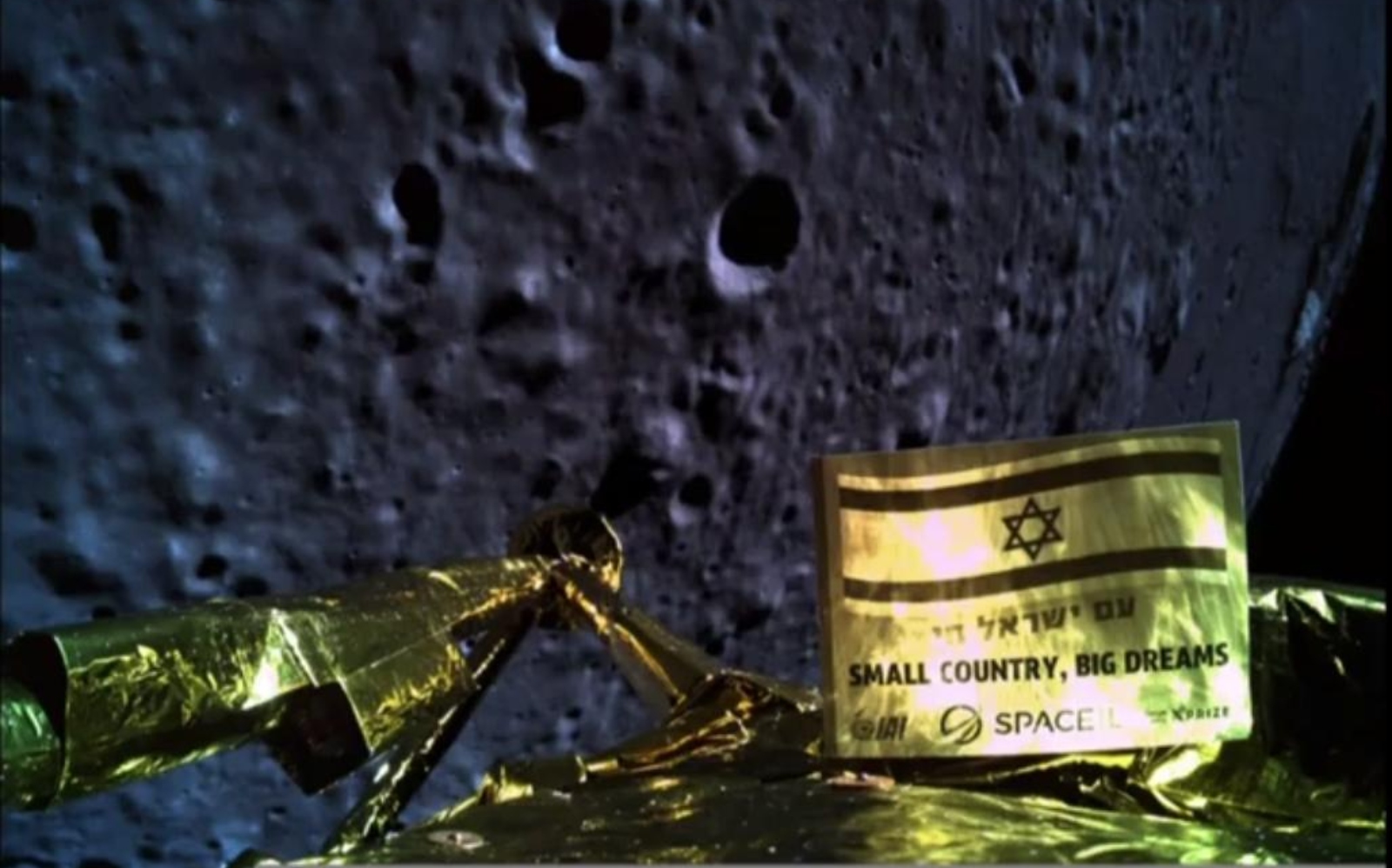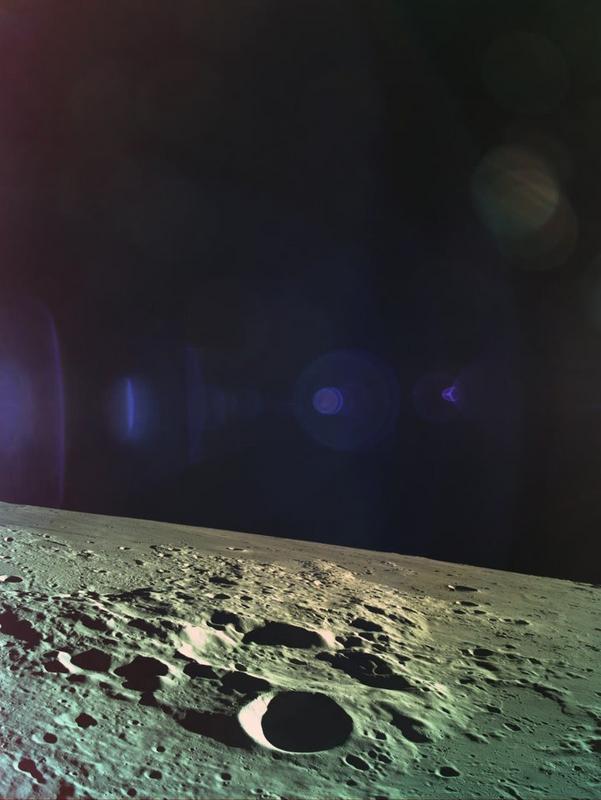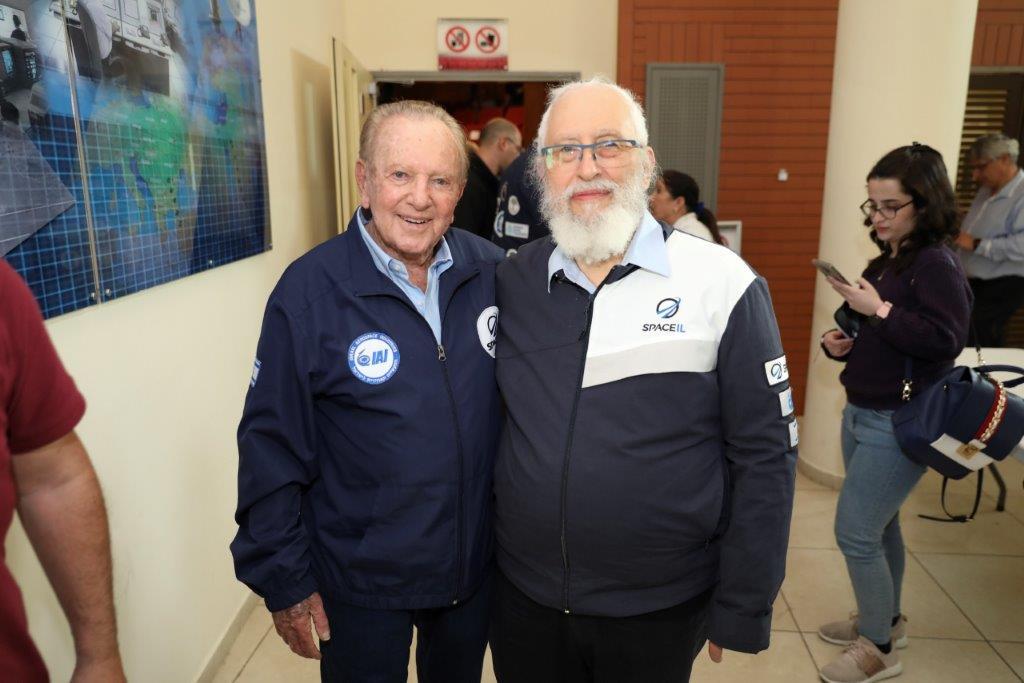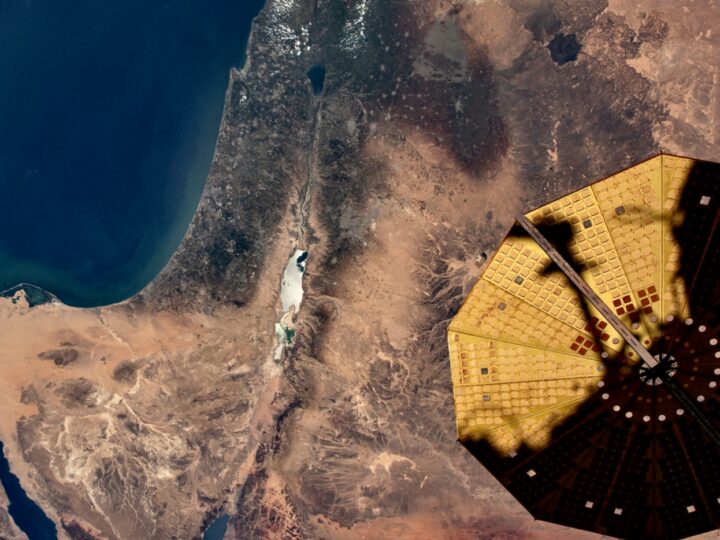Wild cheers turned to stunned silence Thursday night as Israel’s Beresheet unmanned spacecraft suddenly lost contact with the control center. Only minutes before, it had sent a spectacular selfie as it neared the surface of the moon.
It was a little after 10pm. I was at the Jerusalem Cinemateque watching a live feed of the historic event at a design-and-tech evening hosted by Start-Up Nation Central.
Sitting around me were Alex Padua, the lead industrial designer of the craft; former NASA director Dan Goldin; representatives of the X Prize Foundation; Israeli venture capitalists; and lots of local families.
Several minutes away at the President’s Residence, President Reuven Rivlin was hosting a pajama party for dozens of 9- to 12-year-old Israeli kids, all watching history unfold via the IAI-SpaceIL control center in Yehud.

Our mood was euphoric as at first the complicated landing maneuver seemed to be proceeding like clockwork, actually a few minutes ahead of the estimated 10:25 touchdown.
We applauded madly when the little craft successfully passed the point of no return and sent that selfie from a breathtaking altitude of 22 kilometers from the moon.

That’s when things started going wrong.
Telemetry from Beresheet was momentarily lost and regained. A problem in the main engine was quickly repaired. Then communication with Beresheet was lost and the engine problem returned.
“Our situation is unclear,” IAI Space Division General Manager Opher Doron told thousands of astonished viewers across the world.
“Uh oh, uh oh, something’s not working,” the man sitting next to me whispered to his teenage daughter. “It’s going to crash. It’s going too fast. Look how quickly the altitude went from 20,000 to 149! It must be crashing.”
There were several groans from the audience but mainly just tense silence until finally we heard from the control room: “All the signs are that we will not be the fourth country in the world that lands on the moon, but we recorded a huge achievement. We reached the moon, but apparently not in the way we wanted.”
Doron said, with surprising poise, “We had a failure in the spacecraft; we unfortunately have not managed to land successfully. We are the seventh country to orbit the moon and the fourth to reach the moon’s surface. It’s been a tremendous achievement up to now.”
SpaceIL Chairman Morris Kahn, 89, who contributed $42 million to the privately funded effort, took the microphone from Doron.

“Well, we didn’t make it,” said Kahn. “But we definitely tried. And I think that the achievement of getting to where we got is really tremendous. I think we can be proud.”
Prime Minister Benjamin Netanyahu said to Kahn, “If at first you don’t succeed, you try again. We will try again. We reached the moon but we want to land more softly and this will be on the next attempt. In another three years a spacecraft will land on the moon – whole.”
‘We will succeed in the end’
Across town, Rivlin soothed the pajama-clad children.
“Yes, we are disappointed, but there is no doubt that our achievements and abilities – of our scientists and our country – are wonderful,” the president said. “When we were children your age, we never even dreamed we would go to the moon. I hope that you will be the scientists who get to the moon and achieve even greater things. We will succeed in the end.”
The kids then joined the president in singing “Hatikva” (The Hope), Israel’s national anthem.
And among the adults at the Jerusalem Cinemateque that night, applause rang out again, our distress already morphing into hope for the next time around.
Our mood was further lifted by presentations from two young scientists designing the next generation of Israeli space exploration.
Architect and PhD student Helen Wexler told how her project, BubbleBase, is developing technology to 3D-print Mars habitats. Moshe Zagai talked about the D-MARS (Desert Mars Analog Ramon Station) simulation habitat project in Mitzpeh Ramon working to prepare Israelis for the exploration of Mars and other planets.

Crazy dreams? Maybe not. In Israel, nothing is seen as impossible.
As Start-Up Nation Central Executive Director Wendy Singer said, “Tonight is a tribute to all the entrepreneurs in Israel and around the world for whom ‘No, it can’t be done’ is their starting point.”
Perhaps prophetically, former NASA Director Dan Goldin had told our audience earlier about how failure often precedes success – a notion Israelis embrace wholeheartedly.
One example is the 1987 abandonment of the massive Lavi fighter jet development project, a disappointment which ended up spawning many successful Israeli aerospace endeavors and even the 1990s high-tech boom due to the 5,000 scientists and engineers who gained expertise working on the Lavi.
In that spirit, Goldin tipped his hat to the SpaceIL program.
“To the whole Beresheet team: You’ve inspired me and you’ve inspired the world,” said Goldin. “Whether it lands successfully or not, the fact that it has inspired young people to dream — I believe that’s the most important aspect of the world space program.”
This morning – coincidentally, April 12 is International Human Space Flight Day — IAI sent out a statement saying it will “continue to lead Israel to unbelievable achievements” and that it is confident that the “Beresheet effect will continue to lead the children of Israel to dream about Beresheet 2.0!”
There was also good news from Lunar XPRIZE: “They may have not had a successful landing this time, but SpaceIL has still made history. We are happy to announce they will still be the recipients of our first ever $1M Moonshot Award, in honor of their achievements and their milestone as the first privately-funded entity to orbit the Moon.”
Below you can watch the full broadcast of the Beresheet landing.

















